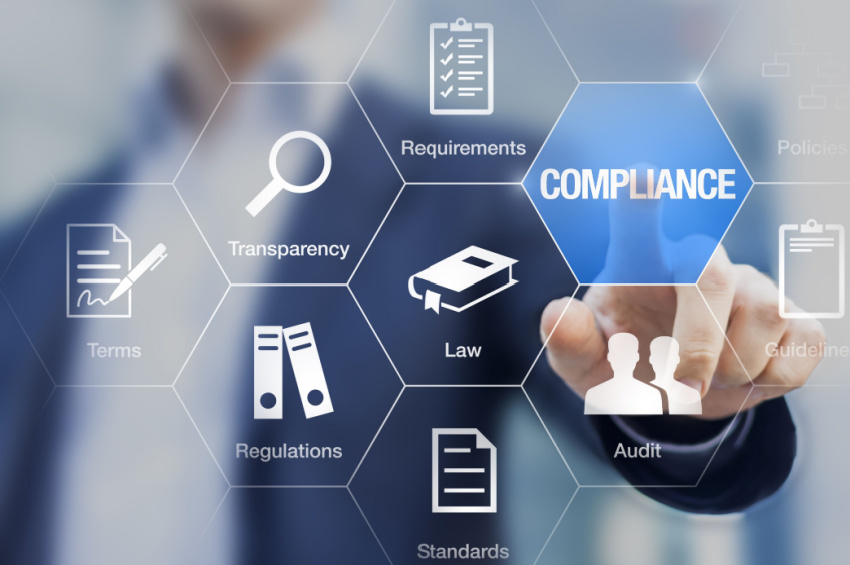As economic uncertainty persists, securities class action suits are on the rise, and fintech firms are becoming a larger target. The fierce competition within the fintech world between existing players and new entrants has generated an increased appetite for research and development funding. Traditional institutions and tech-savvy companies alike have ramped up partnerships and transactions, spurring innovation through cryptocurrency (crypto), blockchain, decentralized finance (DeFi), and other financial technology (fintech). In light of this, organizations must maintain compliance with the law and any potential regulatory modifications and remain vigilant to the prospect of alleged securities fraud, which can be costly in both fees and penalties if not detected promptly.
The Fintech industry has seen remarkable growth and profitability, yet it is subject to the threat of class action lawsuits by Plaintiffs and prosecutors. While potential claimants and prosecutorial bodies can see major financial returns as a result of these suits, Fintech organizations are left facing heightened risk due to limited regulatory measures. To safeguard against litigation and criminal proceedings, Fintech firms must understand their fiduciary obligations to investors and comply with all relevant laws and regulations. This includes collaborating with regulators, providing compliance training to personnel, and maintaining best practices. To ensure the security of the organization’s interests, obtaining legal counsel should likewise be seriously considered.
On January 1, 2021, a securities class action lawsuit was filed against Triterras, demonstrating the prevalence of such legal challenges in the realm of finance and investments. This has created considerable turbulence and doubt for Triterras shareholders. Thus, it is important to keep up-to-date with the issue and comprehend its ramifications on investment choices. Professionals advise investors to take into account all available information before making any decisions involving their funds. Investors must be geared up to encounter potential legal battles that are pertinent to their investments. Knowing the facts and being aware is key when dealing with securities class action lawsuits such as this one against Triterras. I am thrilled to give in-depth insights and observations on the issue to my readers in this article, and I hope my readers find it informative.
Triterras Faces Litigation: What was the allegation about?
Triterras, a global FinTech firm offering inclusive financial solutions for small and midsize enterprises (MSMEs) through its Kratos™ platform, is facing litigation for allegedly deceiving investors on the extent of their monetary reliance on Rhodium Resources, a Singapore-based commodities trader in financial hardship.
The possible consequences from the court’s verdict, to be issued soon, could reverberate across Fintech firms, commodity markets, supply chains, and finance sectors around the globe. This serves as an integral reminder of the necessity of complete transparency when it comes to investing in financial technology.
Triterras Inc. (“Triterras”) is the subject of a class-action lawsuit filed in the United States District Court for the Southern District of New York, alleging that investors have suffered losses due to the Company’s violation of Sections 11, 12(a)(2) and 15 of the Securities Act of 1933, as well as Sections 10(b) and 20(a) of the Securities Exchange Act of 1934. The decrease in stock prices of Triterras following various disclosures regarding Rhodium, related-party transactions, and other matters has resulted in significant financial losses for shareholders.
A securities class action serves to protect those hurt by false or deceptive statements pertaining to stocks, bonds, or other securities. Should it be found that Triterras’ actions constituted a breach of federal securities regulations — including making false assertions or intentionally concealing key details while offering financial instruments to investors, those affected may have legal recourse to recoup their losses. It is, therefore, imperative that individuals are aware of their rights when investing in Triterras securities.
Triterras: Opportunities with Growth, Expansion, and Investment
Triterras, a fintech platform founded by Srinivas Koneru, has experienced significant growth and diversification in its customer base since the acquisition of Rhodium. In November 2023, Triterras was purchased by Netflin, a special purpose entity developed to allow investors to capitalize on substantial growth opportunities. The move away from Rhodium clients has substantially accelerated Triterras’ expansion and lured numerous investors seeking lucrative returns. By providing unparalleled access to digital banking, payment services, and other financial solutions, Triterras is significantly advancing the digitization process of the international trading system.
The United States Securities and Exchange Commission (SEC) recently released a disclosure that exposed financial problems at Rhodium, thus causing Triterras shares to plummet. A class action has since been brought against Triterras regarding violations of the Securities Act of 1933 and the Securities Exchange Act of 1934 due to their lack of communication with investors concerning their ties to Rhodium. This lawsuit alleges that shareholders have suffered substantial economic losses caused by these insufficient disclosures. The primary purpose of the action is to restore shareholder value by recovering economic losses sustained by shareholders across the United States. People affected by this incident might be entitled to legal action if their investments were adversely impacted as a result of Triterras’ failure to inform investors about their relationship with Rhodium.
Also Read: Why do companies get listed in Nasdaq?
Triterras Settlement: Final Court Approval, $9 Million Paid
Triterras, Inc. and all defendants have reached a successful settlement agreement in the Erlandson v. Triterras, Inc., et al. securities class action lawsuit (Civil Action No. 7:20-cv-10795-CS) that has been granted final court approval as of September 8, 2022. There is no admittance of liability or wrongdoing on the part of the Company or any other named defendant in the case. In accordance with the terms of the said settlement, the Company has made a payment of $9 million, with an estimated $4.25 million to be covered by insurance reimbursements. This marks the conclusion of this litigation dispute.
Triterras driving growth: Kratos Platform Sees Impressive Growth and Expansion
Triterras have witnessed a significant decline in their primary market segment. Nonetheless, they achieved positive results from their H1 earnings report through continuous user acquisition. Their business progression is marked by the provision of Supply Chain Finance and the development of an anchor buyers’ backed financing arm.
This has enabled them to grow revenues by optimizing resources in tangible and digital markets. The Company continues to invest heavily in technology, digital infrastructure, services, new markets, and cutting-edge products. Moreover, Triterras is dedicating itself to providing efficient financial services across various global markets while carefully manufacturing a balance between risk, cost, and speed. With concentrations in finance and supply chain elements, Triterras is focused on reinforcing its place as a frontrunner in the competitive landscape of international finance.
Kratos™ Platform has experienced exponential growth, witnessing a remarkable 89% increase in users and instigating $21.5 billion in total transaction volume since its launch in August 2022. To capitalize on its impressive success, the Company is wisely redirecting the platform away from S&M commodity trading and into supply chain finance with the acquisition of Invoice Bazaar. In addition, they have extended their reach beyond East Asia to the Middle East and North Africa, demonstrating their ambition for global expansion.
Triterras is a rapidly growing company with a solid user base, further aided by its success in onboarding finance companies. To ensure the security of its platform, Triterras has acquired the International Organization for Standardization’s (ISO) IEC 27001 Information Security Management certification and completely migrated to AWS-managed Hyperledger blockchain technology. The organization is also investing in Kratos 2.0, a no/low code version of the platform currently being developed. These advancements showcase Triterras’ commitment to technological innovation and adaptation, allowing them to remain competitive in the long term.
Triterras, a global fintech platform, recently revealed its financial results for the six months that concluded on August 31, 2022. The figures illustrate that the Company is making advances in regard to both revenue and profits. However, legal challenges linked to its ties to Rhodium Resources have been raised.
In September of this year, Triterras managed to settle a previously reported class action litigation. The court ratified the negotiated agreement that entitles investors to receive restitution and other remedies due to some insider relationships.
Potential shareholders should take into account Triterras’ monetary performance and juridical standing prior to making a commitment. Seeking Alpha has recently assessed the Company’s binary prospects in more detail. All in all, it is compulsory to carefully consider the financials and regulations associated with investing in Triterras.
Trade finance advice provides regular updates on articles related to trade finance organizations. For more articles, please visit our website.



